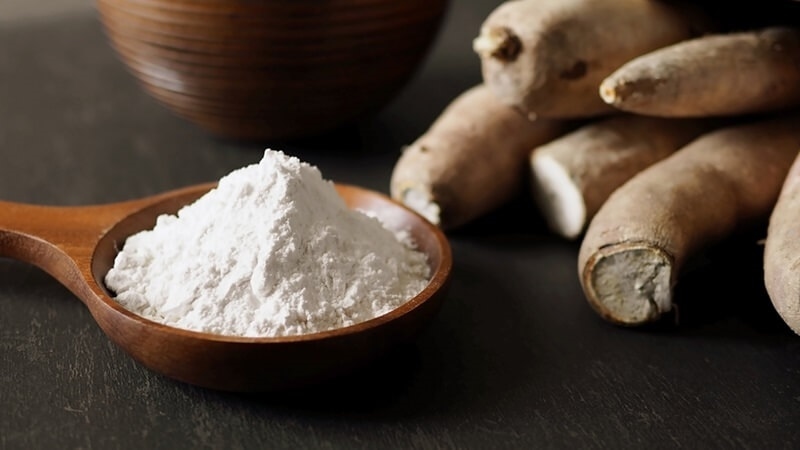
Cassava has been a major food staple in African diets for hundreds of years, as food and fuel for people. The nutritional benefits of cassava as a crop contribute to its key identification as a staple food and a valuable commodity, particularly when used as a daily energy source. In addition to the identity of cassava as a root crop, which is relevant to the well-being of food culture, the potential health claims of cassava also contribute to conversations around health and wellness, sustainable dietary practices, and food diversity.
Cassava changed the focus of African food from a key ingredient in the cuisines of Africa to one of Africa's most recognizable gluten-free foods and the revitalization of traditional food and forms of modern nutrition. The food we make, the different potential usages of cassava root, and how cassava has a place in today's global food system are some of the reasons cassava should be included in any discussion related to health and wellness today.
Cassava is critical globally for many reasons, including resiliency, accessibility, and nutritional value. While it is a starchy root crop, cassava is much more than a carb. It is a source of dietary fiber, as well as other minerals and phytochemicals that can enhance digestion, promote immunity, and support healthy lifestyles and long-term health.

When individuals refer to cassava health benefits, they mostly bring up energy provision. Though its benefits extend to calories, there is more to cassava. Some of the significant areas where cassava helps in health are:
Cassava naturally contains resistant starch, a form of carbohydrate that acts like soluble fiber. It enhances gut health, minimizes bloating, and aids in developing good bacteria.
Due to its vitamin C content, cassava maintains a healthier immune system. This aids the body in resisting infections and healing wounds.
As one of the African gluten-free foods, cassava ensures that people with gluten intolerance can eat without discomfort.
The resistant starch in cassava generates sustained energy; hence, it highly benefits physically active people and individuals with blood sugar control.
Cassava contains minerals like calcium and magnesium, which help strengthen the bones, and vitamin C to create collagen for healthy skin.
One of the most interesting forms of cassava root utilization is milling cassava into flour. Cassava flour has been used throughout Africa for a long time and is a large part of our traditional foods. Also, because it's gluten-free, the use of cassava flour is growing in global markets among those who are seeking a grain-free alternative to wheat that is more health-conscious.
The growing utilization of cassava flour indicates that the influence of African food culture is becoming reflected in how we eat across the globe, and concerning increased consumption among gluten-free and vegan diets.
There is much demand for African gluten-free foods because, as people search out nutrient-dense food where gluten alternatives are culturally relevant options for those using wheat and barley, cassava is one of the most well-known foods. It has different products and varieties that allow for great adaptability.
Cassava is dominant among African gluten-free foods for three fundamental reasons:
Cassava's ability to connect health-sensitive needs to cultural relevance is part of the reason cassava is now regarded as one of the world's leading foods and emerging in contemporary African cuisine.
There cannot be enough said about the usability of cassava; below is a list of just a few of the most common uses of cassava root:
All these industrial applications reflect why cassava is now one of the most important staples of the African diet, both now and in the past.
To consider cassava's nutritional values, you have to compare it with other African diet staples like yams, maize, and millet:
This comparison explains the nutritional reason why cassava is irreplaceable in maintaining the security and health of African food.
Cassava will become a climate-resilient crop due to its regenerative adaptability to poor soils and lack of moisture. It requires less input than almost all cereals and can play a crucial role in alleviating global food insecurity issues while increasing sustainability in smallholder farmers' activities.
While food systems continue to evolve to be resilient and inclusive, cassava finds itself as much a way of life and cultural image as a hopeful solution to moderate modern-day nutrition dilemmas. Its global ascension is about the triumph of tradition as much as innovation.
Cassava is still one of the most dominant African diet starches with centuries of tradition, resistance, and nourishment. Because of the societal emphasis on nutrition direct from the tuber plant, the nutritional values of cassava create something more about a starchy root culturally; it is more about our heritage and dietary complexity in health resistance.
Cassava keeps challenging the dominant narrative and disrupting traditional and new diets, from adding immunity and assisting digestion to being one of the best gluten-free food ingredients in Africa! It is further the use of cassava flour in the African diet and the various uses of the cassava root that make cassava a food source for food security for itself and a superfood for nutrition.
As the new world looks for better health, gluten-free, and sustainable food options, cassava is poised to be an example of historic wellness and tradition. Embracing the power of cassava is much more than embracing history; it should be embraced as a path to a healthier, more sustainable world for everyone.
This content was created by AI